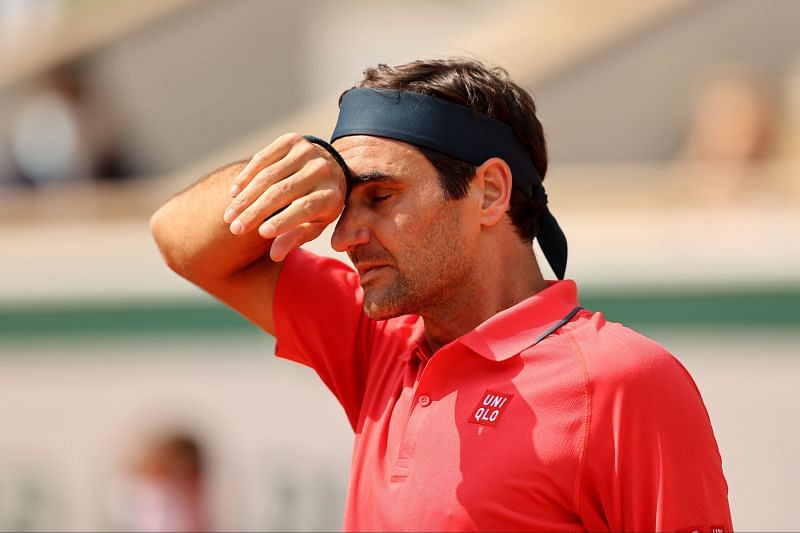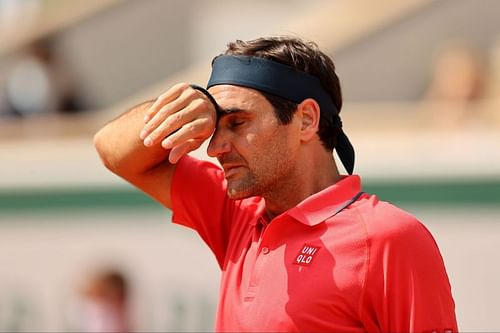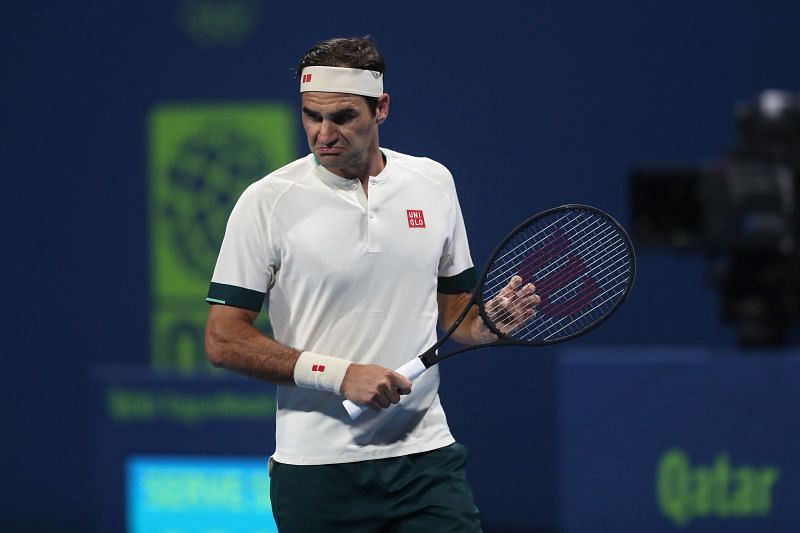
Alex Corretja says he was "worried" by Roger Federer's body language in Halle loss

Roger Federer's grass season got off to a rocky start as he was defeated by Felix Auger-Aliassime in the second round of the Noventi Open in Halle. It marked the Swiss' earliest exit at the event, where he is a 10-time champion.
Federer then arrived two hours late for his post-match press conference, claiming he needed to digest the defeat before speaking to the media. The 20-time Grand Slam champion said he got "negative" as the match slipped out of his hands, and admitted his attitude was far from ideal.
Speaking to Eurosport, Alex Corretja said the Swiss' negative body language throughout the match was a worrying sign in the lead up to Wimbledon, which begins on Monday.
"I was worried about his body language a little bit," Corretja said. "He was, I think, inside himself. He’s the only one who knows how he’s feeling, the way he’s moving. Sometimes it’s not about complaining. It’s a matter of you are playing and inside you, you feel ‘this is not how I want to feel’. And I think Roger feels a little bit that way right now."
The 39-year-old has posted a 4-3 win-loss record since returning to the tour following a 13-month hiatus. Despite his struggles, the Swiss remains optimistic about his chances at Wimbledon, where he is an eight-time champion.
Corretja believes that if Federer can play his way into the tournament and find his best tennis, he can be competitive.
"I’m just worried he doesn’t feel 100 per cent on his knee because it’s normal that his movements are still not the best," Corretja said. "Well, he needs a very, very good first week to get the rhythm that he needs to become good the second week and to perform well."
"I think if he gets the rhythm that he needs, he’s going to be very dangerous but there are many players that right now can hurt him, when before it was maybe only two or three," the Spaniard added.
Corretja believes Federer's situation shows just how hard it is for older players to come back from serious injury.
"“It makes us realise how difficult it is to come back after a big injury," the former World No. 2 said. "How difficult is it to come back when you are 39 years old?"
"It’s what he has right now and you need to accept that and then he will be the one deciding whether or not he wants to continue. If he sees that he is ready to come back to his best level, he will continue. If he feels like he cannot be at the level he wants and can’t win Slams. I don’t think he will continue," he added.
Roger Federer pointing the finger at himself in Halle was "alarming": Mats Wilander

Seven-time Grand Slam champion and former World No. 1 Mats Wilander also weighed in on Federer's form and chances at Wimbledon. The Swede said he found it "alarming" that the eight-time Wimbledon champion was pointing the finger at his own attitude.
Wilander likened Federer's display against Auger-Aliassime to his straight-sets defeat to Gustavo Kuerten at Roland Garros in 2004, when the Swiss looked downbeat and unenthusiastic.
"I actually saw him show it one time against Gustavo Kuerten at Roland-Garros, where he looked not interested to be there and was willing to hit the grass courts," Wilander said. "So, I think that he's most probably felt like that before but for him to actually point the finger at himself - that's alarming."
Wilander believes Federer's negative attitude could play into the hands of the young players, giving them the belief they need to take down the Swiss.
"I think what happens when you do that, the thing we never talked about, it puts a green light in the locker room to the rest of the field like 'wow, even Roger Federer doesn't feel like fighting to the very end with a good attitude these days.. so you know what Roger, you are 39, I am 21, I'm going to be out there for five hours if I have to. Even if you're Roger Federer," the Swede added.